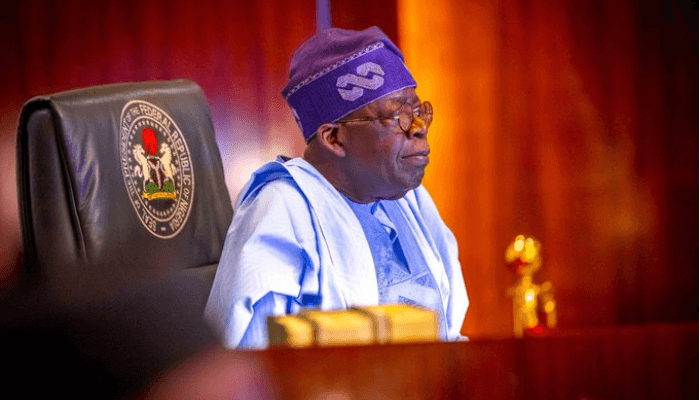President Bola Tinubu’s assignment on Wednesday of portfolios to 45 newly appointed ministers attracted audible sighs of relief among Nigerians, the business community, and the country’s international partners.
Having wasted two months before sending nominations to the Senate for confirmation, the President finally signalled the effective take-off of his administration. He and the ministers should immediately roll out and implement policies to lift the country from the mire.
There is no time to waste. Tinubu’s promise after being declared winner of the presidential poll on March 1 to “hit the ground running” collapsed on the altar of patronage politics, ill-preparedness, and incompetence.
He wasted the three months between his electoral victory and inauguration and barely squeaked past the set 60-day legal time limit after inauguration to compile an initial list of 28 ministerial nominees.
Similarly, his pre-inauguration vow to have a cabinet of technocrats has proved hollow. Political operators, including former state governors and nominees of political ‘godfathers’ dominate the cabinet.
His nominees have not attracted universal acclaim. There are a few acknowledged experts in the team, while other persons given sensitive portfolios attract apprehension, not hope of better days ahead.
Nevertheless, the President has exercised his constitutional prerogative to appoint ministers. The Senate, as usual, did a terribly bad job of screening, and Nigerians must live with the choices of both arms of government.
Now, the team must truly and qualitatively sprint. Nigeria is in dire straits. Poverty is on the rampage, and so are criminals and terrorists.
Unemployment, persistently on the rise for decades, is set to worsen after Tinubu fired wildly on taking office with his immediate stoppage of the petrol subsidy, followed three weeks later by the Central Bank of Nigeria’s flotation of the naira. KPMG projects the jobless rate to rise over 41 per cent this year, and the youth segment has already hit 53 per cent.
Both measures, says the World Bank, are creating 7.1 million additional extremely poor persons to join the 71.28 million, or 32 per cent of the population already in that hole, according to the World Poverty Clock. Foreign exchange scarcity, energy shortages, and production stoppages have battered the productive sectors, hitting SMEs and agriculture, which together account for most production and employment, particularly hard.
Bandits this (last) week brought down a Nigerian Air Force helicopter in Niger State where they also killed over 25 soldiers in an ambush. Infrastructure is miserably inadequate everywhere, maladministration, corruption, and impunity reign.
Tinubu must energise the cabinet to renew confidence in governance and democracy and burnish his “renewed hope” slogan.
To succeed, he needs to govern with a firm hand. He should have robust, comprehensive, and sector-specific plans. He should set targets, timelines and roadmaps and ensure effective coordination of programmes and of ministerial teams.
His renaming of ministries and titles should not be mere cosmetics. Wale Edun should be given both a blueprint and full presidential backing to deliver positive outcomes as Minister of Finance and Coordinating Minister of the Economy. They should both think outside the box and avoid unquestioning wholesale adoption of World Bank/IMF orthodoxy.
Tinubu should leverage Ali Pate’s expertise and international exposure in health care and ensure that the title of Coordinating Minister of Health and Social Welfare translates to radically transforming the country’s broken health care delivery system, and erect a functional social safety net system. Bosun Tijani, an IT specialist, assigned the Communications, Innovation and Digital Economy portfolio should also be given the leeway to position Nigeria to realise its potential in the global digital economy valued by the World Bank $4.5 trillion in 2021.
Many Nigerians remain sceptical at the assignment of critical ministries to some recycled political actors, including past governors, some of whom are under investigation for corrupt practices and represent the prevailing governance template of impunity, and state capture.
This places a greater burden on Tinubu to be a hands-on leader; he should be alert, closely monitor and supervise his ministers, and insist on accountability and effective service delivery.
The absence of any former senior military officer in the cabinet is an avoidable lapse in a country with Nigeria’s current security challenges. Tinubu should correct this.
Any faltering minister should be immediately dropped; nepotism and extravagance should be stopped. There should be zero-tolerance for corruption and drastic cuts in the cost of governance.
Too much time has been wasted; it is time to get to work with the efficiency of worker ants and the fervency of genuine patriots. Tinubu and the cabinet should get cracking.
Culled from Punch.

